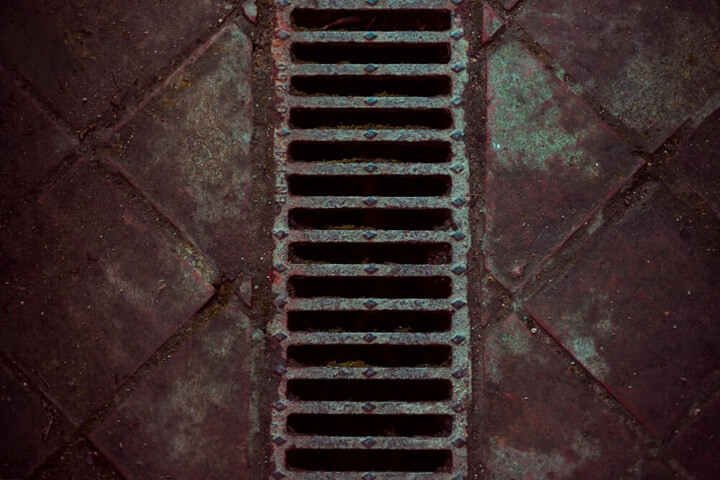Have you noticed a sewage smell around your home? It’s a common yet concerning issue that often indicates an underlying plumbing or drainage problem. The sewage smell outside house not only creates discomfort but may also signal health risks or damage to your septic or sewer system.
Addressing this issue early can save you from costly repairs, unpleasant odors, and potential contamination. In this article, we’ll explain how your system works, what causes these smells, how to detect the source, and the best ways to fix and prevent the problem.
How Does Your Septic System Work?
Before diving into the causes, it’s important to understand how your septic or sewer system functions. Wastewater from your home flows through drain pipes into either a municipal sewer line or a private septic tank. Inside the tank, solid waste settles while liquid waste moves through filters and into the drain field, where it’s naturally treated and absorbed into the soil.
If any part of this process becomes blocked, damaged, or overwhelmed, gases can escape – resulting in that sewer smell outside house. Regular inspections and maintenance are key to preventing these issues from building up unnoticed.
What Causes a Sewage Smell Outside House?
A persistent sewage smell outside your house can stem from several underlying issues. Identifying the right cause helps you apply the proper solution quickly and effectively.
1. Broken or Leaking Sewer Pipes
Cracked, collapsed, or leaking sewer lines allow sewage gases and waste to seep into the ground, releasing foul odors near the surface. This often happens due to aging pipes, tree root intrusions, or ground shifting. If you notice wet spots or search for reasons for foul “smells like sewage outside my house”, it’s likely time for a professional inspection using a camera scope to locate the damage.
2. Blocked or Clogged Drains
When your drains are clogged with grease, debris, or foreign materials, wastewater can back up, forcing gases out through outdoor drains or vents. This pressure buildup leads to a noticeable sewer smell outside near the drain openings or cleanouts. Cleaning drains regularly and avoiding improper disposal of grease and waste can minimize this risk.
3. Vent Pipe Issues
Your plumbing system relies on vent pipes to allow air circulation and maintain proper drainage flow. If these vents become clogged with debris, leaves, or nests, sewer gases can’t escape through the roof and may instead leak out near ground level. This often creates that unmistakable sewer smell outside house when standing close to external vents or gutters.
4. Dry or Faulty P-Traps
A dry P-trap, which is designed to hold water and block gases, can lose its seal when not used for a while. Outdoor sinks, basement drains, or unused fixtures may allow gases to escape, producing odors that smell like sewage outside my house. Simply pouring water into unused drains can help restore the trap’s seal and stop the odor.
How to Detect the Source of the Sewer Smell?
Finding the exact source of a sewer smell outside the house requires patience and a systematic approach.
Step 1: Smell Intensity Mapping
Walk around your yard and note where the odor is strongest. Pay close attention to areas near drainage lines, septic tank covers, or cleanout caps. A stronger smell near a particular spot can pinpoint where the problem lies.
Step 2: Check Drainage Points and Sewer Cleanouts
Inspect outdoor drains, gutters, and cleanout plugs for blockages or leaks. If you notice standing water, sludge buildup, or damaged caps, that’s likely where the smell originates.
Step 3: Look for Signs of Sewage Pooling
Wet, discolored patches of grass or a soggy yard, even without rain, can indicate sewage leakage underground. This pooling releases strong gases and may attract insects or pests.
Step 4: Use Tools or Professional Help
Homeowners can use gas detectors or sewer cameras, but professional plumbers have advanced diagnostic tools to locate leaks without digging. If the odor persists or worsens, it’s best to call an expert before the damage spreads.
How to Get Rid of Sewer Smell Outside?
Once you’ve identified the source, it’s time to take corrective measures to eliminate the odor and prevent future recurrence.
1. Repair Damaged Pipes or Seals
If broken sewer lines are the issue, a plumber can replace or reline them using trenchless sewer repair methods. This not only stops the leakage but also prevents soil contamination and gas release.
2. Clean and Flush Drains
Flush all drains with hot water and baking soda or a mild enzymatic cleaner to dissolve blockages and deodorize pipes. For outdoor drains, remove any visible debris and ensure proper water flow.
3. Unblock Vent Pipes
Check vent stacks on your roof or walls. Use a hose to flush them or a plumber’s snake to remove obstructions. This restores proper ventilation and allows gases to exit through the correct channel.
4. Maintain Your Septic Tank
If your property uses a septic system, ensure it’s pumped every three to five years. Neglecting this can cause overflow and odors that make it seem like septic stinks outside. Regular maintenance ensures bacteria inside the tank continue breaking down waste efficiently.
5. Use Activated Carbon or Bio-Enzyme Treatments
For minor odor control, place activated carbon filters or bio-enzyme pods near affected areas. These absorb or neutralize gases naturally while improving air quality around your home.
DIY Fixes vs. When to Call a Professional?
DIY methods can be effective for minor odor issues, such as drain cleaning, refilling P-traps, or unclogging vents. They are low-cost and relatively simple for homeowners to manage. However, if you notice recurring odors, wet soil patches, or gurgling noises in your plumbing, it’s time to call a professional.
Persistent sewer smells outside the house can indicate pipe breaks or septic tank issues that only licensed plumbers can safely repair. Ignoring these signs could lead to costly structural or environmental damage. Professionals use advanced leak detection tools, hydro jetting, and odor diagnostics to fix the problem thoroughly and prevent recurrence.
Conclusion
A sewage smell outside your house is more than just an unpleasant nuisance. It is a warning sign that something is wrong within your drainage or septic system. Whether caused by broken pipes, vent issues, or clogged drains, quick action is essential to protect your property and health.
Regular inspections, timely repairs, and preventive maintenance from us at Eco Plumbers, Electricians, and HVAC Technicians are the best ways to ensure your home stays odor-free and your system functions properly. If simple fixes don’t solve the issue, always call us at (937) 699-6015 for a professional plumber to address the root cause effectively.
FAQs
1. Why do I randomly smell sewer outside my house?
This can happen due to temporary vent blockages, changes in weather pressure, or partial drain clogs. The smell may dissipate when airflow normalizes, but it can persist if there’s a leak or pipe damage.
2. Why does my yard smell like septic?
If your yard smells like septic, it could mean your tank is full or leaking. Wastewater may be seeping into the soil instead of draining correctly, producing strong, unpleasant odors.
3. Why does it smell like sulfur outside my house?
A sulfur or rotten-egg smell typically comes from hydrogen sulfide gas, a byproduct of decomposing organic waste in sewage systems. It often signals a venting issue or buildup in your plumbing system.









